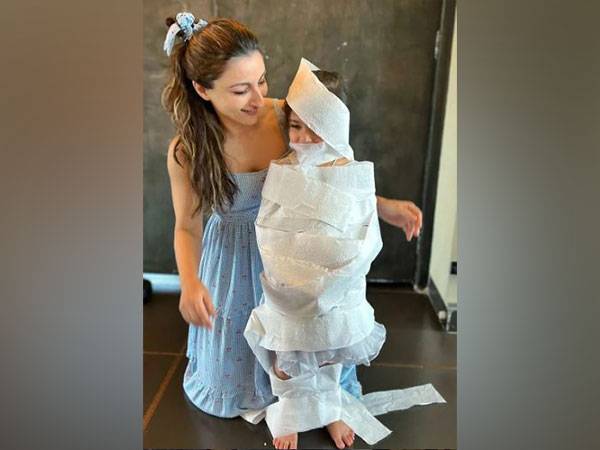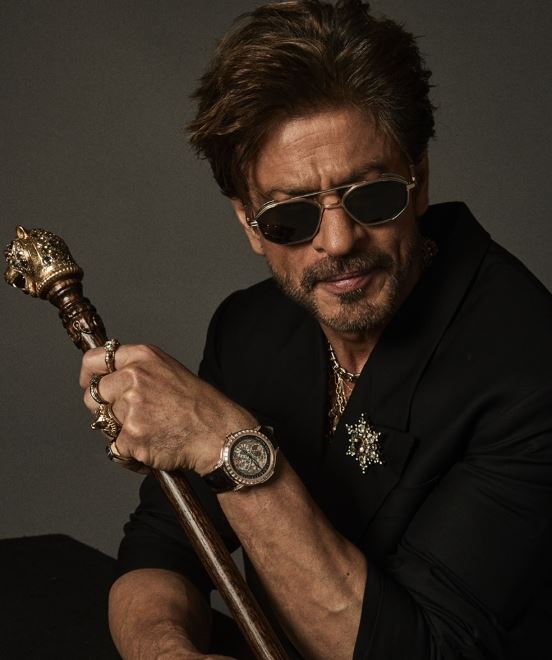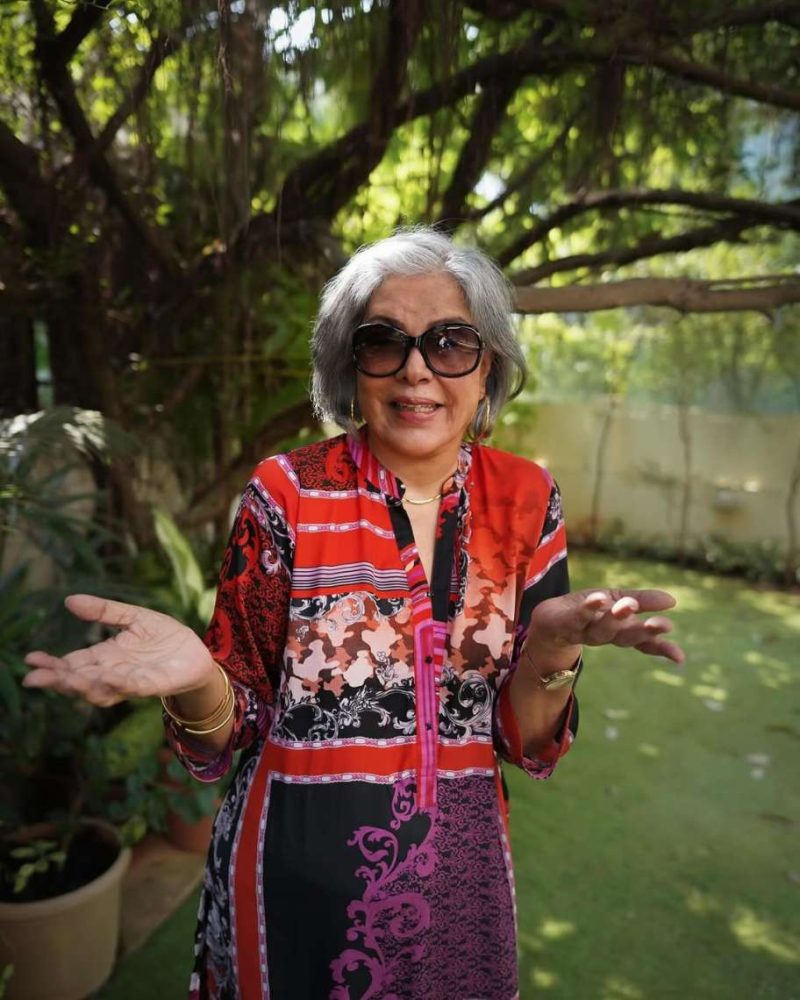Gender equality means that there are no rules that are specific to men or women. They are things that you share equally. A woman is as valid in the workplace as a man is in a domestic scenario…Soha, Kunal interact with N. LOTHUNGBENI HUMTSOE
“One should avoid using gender to define a job, play, or any other activity. We’re all products of the social conditioning we’ve received as a result of our upbringing”, says actors Soha Ali Khan and Kunal Khemu.
A one-day #WeSeeEqual Summit hosted by Procter & Gamble India brings together influencers from the government, corporate sector, media, and entertainment industries to discuss gender equality issues ranging from driving equality in education and economic opportunities to LGBTQ+ inclusion at work and shaping today’s generation for an equal tomorrow.
The summit demonstrated the brand’s ongoing commitment to making the world more equal and inclusive. The event brought together distinguished advocates and personalities to discuss the challenges that society faces in terms of equality and inclusion, as well as how different stakeholders can work together to accelerate progress.
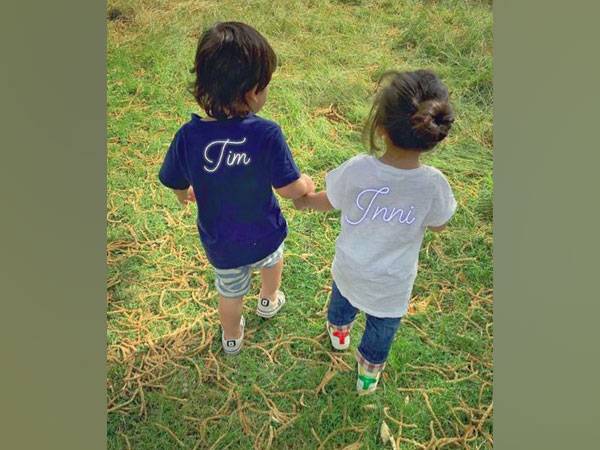
Some of the key topics discussed throughout included actions needed today to shape the minds of future generations, the challenges and solutions to addressing equality in education and economic opportunities, and the importance of building an inclusive workplace.
Actors Soha Ali Khan and Kunal Khemu, who were part of a key session for the day titled “Shaping Today’s Generation For An Equal Tomorrow,” revealed to exclusively how parents can shape the minds of young children today for an equal tomorrow.
A piece of parenting advice on “Shaping Today’s Generation For An Equal Tomorrow”.
Soha & Kunal: We joined the conversation about ‘Shaping Today’s Generation For An Equal Tomorrow’ at the #WeSeeEqual summit, organised by P&G India to drive meaningful change.
One parenting piece of advice on shaping today’s generation for an equal tomorrow is that we should raise our children as children and not based on their gender as a boy and a girl. We must avoid discrimination by saying that a boy can do this, and a girl can’t do this, This is a colour and not that this is a girl’s colour, this is a boy’s colour. These are the toys that boys play with and suggest different toys for girls. You should raise your children and allow them to do what they enjoy. This will help them in accepting themselves and not believing that they’re different.
Of course, physically and anatomically they will learn at school and if they have questions, answer them, as opposed to shying away from them or denying them as taboo topics. Evolution is anyways going to be responsible for a lot of change. We as parents can be a part of that change, especially by making sure we avoid defining any job or any play or any such thing on the basis of gender.
We need to practice what we preach, and we need to be careful around things because everything is based on social conditioning. We may not be perfect. We’re all products of the social conditioning that we’ve had in the way we’ve been brought up. If we do recognise certain things that we want to change, we have to make sure that we present them like a normal for tomorrow. So, our children grow up and are products of their right form of social conditioning.
To begin, what does gender equality mean to both of you?
Soha: Gender equality means that there are no rules that are specific to men or women. They are things that you share equally. A woman is as valid in the workplace as a man is in a domestic scenario. We’ve incorporated gender equality in our parenting style as well, by avoiding defining individual roles as per the criteria of gender norms. We share the parenting load equally and there are no tasks that are segregated by gender.
In fact, I try to do what I enjoy more like reading bedtime stories or taking Inaaya for Bootcamp classes and doing workouts together. And Kunal does what he enjoys more like cooking for her because they both are such foodies. We try to also ensure that when it comes to the way we behave around Inaaya to the way that we do our tasks, duties and our chores, she sees Kunal and me as equals, as equal partners, as both of us go to work and enjoy our work and at the same time we both enjoy parenting and the different things that it involves.
Do you think that including LGBTQ+ people in the workplace and other activities will help to end gender inequality? If not, what additional steps do you believe are required?
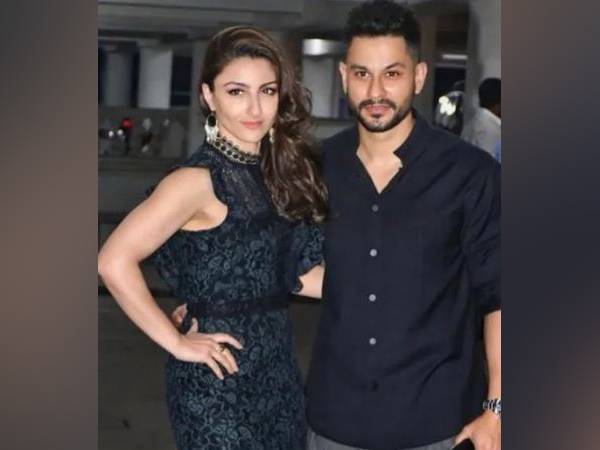
Kunal: To answer your question, including the LGBTQ+ people in the workplace, and similar such activities may not help in ending gender inequality because you have to make sure that you know organisations and individuals are not doing it out of the guilt factor, but it is definitely a step in that direction. What’s of utmost importance is for people to be open to accepting it.
Not just physically, but also mentally and emotionally. People at large need to be accepting of the community and the moment it starts becoming normal is the moment we will be able to accurately navigate the steps to move in that direction. But yes, it is one of the steps, which is important in the process, as a whole, but it has to come from the right place.
It is no secret that there is a higher rate of prejudices in the field of female entrepreneurship. What advice would you give to women in the industry and those considering a career in it?
Kunal: There are gender-based prejudices in every field. I am aware of the fact that women face it a lot more. And hence I am of the opinion that anywhere you feel that you have been ill-treated or are facing inequality, it equates to injustice. The first step when you come across injustice is to raise your voice against it.
Personally, my advice would be if you ever see something that is wrong, or is unjust, you have to raise your voice or put up a stand against it. I think that what you need to do in any industry, any field is to not be scared, know what you’re capable of doing and do your best. When I say what you’re capable of, when you have the right to say something is wrong, you need to be clear-headed about it, to avoid any confusion, since with great power comes great responsibility.
Soha: Life is full of people judging you. And I’ve been boxed many times. It’s not fun to be stereotyped, because that means you’re consigned to living a life, that you may not want to live as a person that you really aren’t. That can happen at different stages in your life and certainly when you become parents.
The choice of becoming a mother late in my 30s was something that a lot of people felt was shocking, because of a lot of assumptions. And then of course, once you become a mother, they automatically perhaps feel that your work is going to take a backseat, or that it’s very difficult to be a good mother, a good professional, and to be equally committed to more than one thing, which is something that I’ve faced. And many women face it.
Soha, you’ve often talked about your parenting style. What actions do you take to instil kindness in Inaaya?
Soha: In terms of our parenting style, Kunal and I share the load equally and there are no tasks that are segregated by gender. In fact, I try to do what I enjoy more and Kunal does what he enjoys more. He has a keen sense of style and they both enjoy dressing up so they both choose her outfits for school together and try new hairstyles. One habit that we really wished to develop is for Inaaya to be around animals while behaving respectful to them and extending kindness to them and now she really loves them. It’s small habits like these.
The little things we do at home to instil the right habits in Inaaya. We also make sure that we take care about how we behave around Inaaya, things like watching our language and trying to use gender-neutral language. We must also encourage interactions by having play dates with girls and boys playing together. Inaaya’s friends come over, which includes both boys and girls and they play together in a healthy and kind manner.
It’s very satisfying to see a positive outcome of our own actions, and as we all know, children learn from the actions of their elders. What is it that Innaya picked up on subconsciously from your parenting style that blew your mind?
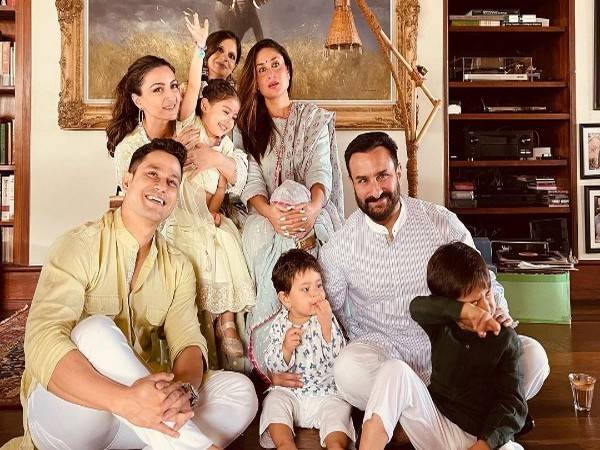
Kunal: We are bringing Inaaya up in a way that we feel will contribute to her becoming the best version of herself. This involves a lot of listening to her and understanding what it is that she wants, instead of constantly saying no to her requests. We give her a lot of choices that are healthy for her development, and she can choose from these options. We follow a form of child-led parenting.
Some things that are non-negotiable for me are things like bedtime because I do feel it’s important for her to go to bed at the right time so that she’s well-rested and wakes fresh the next day. This has become a habitual pattern which Inaaya has adapted to and adheres to going off to sleep at an appropriate time, daily. This ultimately benefits all of us. We’ve also habituated Inaaya to healthy foods from a young age and she enjoys indulging in a range of nutritious food options. From time to time, we also provide her with desserts and treats that are not always healthy. She understands that and likes to try new foods while enjoying a wide range of tastes when it comes to her palate.


